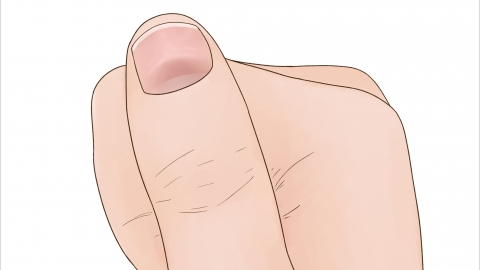Is the absence of lunula due to yin deficiency or yang deficiency?
The absence of lunulae (the white half-moon shapes on nails) is usually a sign of yin deficiency. If discomfort occurs, it is recommended to seek medical attention promptly. The analysis is as follows:

In traditional Chinese medicine (TCM) theory, the lunula on fingernails is considered an external indicator of the body's yin-yang balance. The absence or reduction of lunulae is generally associated with yin deficiency, which refers to an insufficiency of bodily yin fluids, leading to a relative excess of yang. A deficiency in yin fluids not only impairs the body’s nourishing and moistening functions but may also cause symptoms such as internal heat and dryness—conditions that can manifest in the appearance of the nails. Individuals with yin deficiency may experience symptoms like dry mouth, dry skin, insomnia, and vivid dreams, all of which are related to insufficient yin fluids. Since nails reflect overall health, their growth and condition can be affected; thus, the lack of lunulae may indicate yin deficiency.
However, because everyone's physical condition and constitution differ, the specific underlying causes may vary from person to person. If there are no lunulae on the nails and other discomforts are present, it is advisable to consult a healthcare provider promptly, undergo appropriate examinations, identify the root cause, and receive treatment under medical guidance. Additionally, maintaining healthy lifestyle and dietary habits, ensuring sufficient sleep, and engaging in moderate exercise can support overall well-being.




